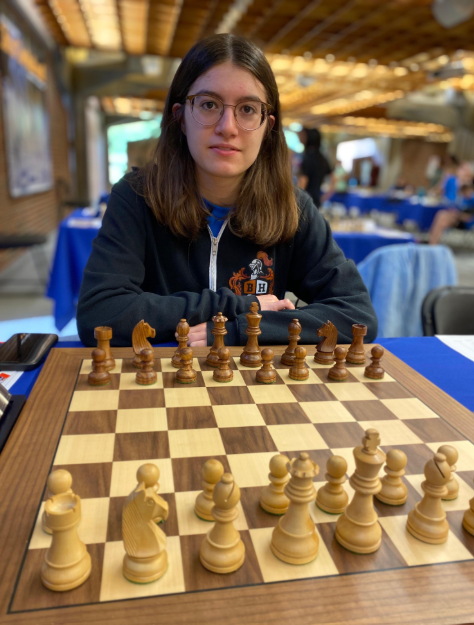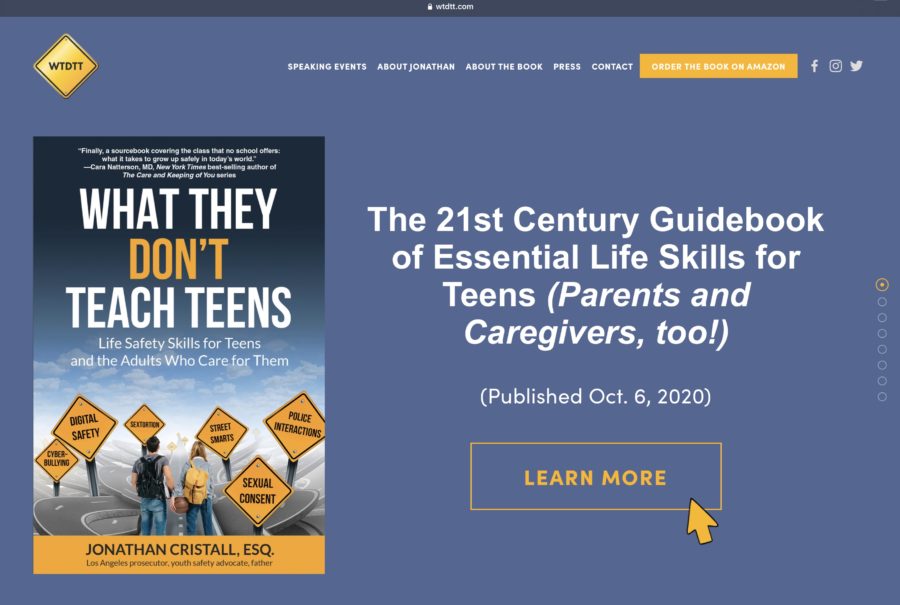Los Angeles Prosecutor, Beverly alum (class of 1990) and author of What They Don’t Teach Teens Jonathan Cristall spoke on NormanAid’s monthly “Make Today Well Lived” Podcast for November’s digital safety month.
2020 marks Cristall’s fourth year presenting at Beverly and educating students on sexual consent, sextortion, digital safety and many other topics. Cristall was, in his own words, a “troubled teen” and transferred to a boarding school from Beverly in the middle of his junior year. Coming back to his old high school for the first time was a peculiar experience for him.
“It was kind of surreal for me coming back to Beverly. It was just so wild because here I was, such a different place decades later. When I was at Beverly, I was struggling a lot emotionally and in every other way. And so to be back, having turned my life around and teaching some of the things I’ve learned through writing my book…was surreal in a lot of ways. It’s been rewarding and wonderful being back,” Cristall said.
Cristall began giving his presentations at Beverly when someone recommended him to Ali Norman-Franks, founder of NormanAid Wellness Center, following one of his lectures. Norman-Franks finds his methods of presentation to be relatable and beneficial for students.
“The impact [of his presentations is that] he’s been able to explain topics that can be difficult to discuss, and even the legal side of it. He’s able to explain it in a way that I truly think makes it very interesting. He’ll share actual cases and scenarios of things that have happened,” Norman-Franks said. “I think he’s very relatable because it doesn’t feel like he’s lecturing. It’s not like he’s just telling us what to do, or students what to do and not to do.”
Cristall emphasizes digital safety in his presentations. He finds it important to educate Gen Z students about digital safety, because they grew up with technology like the Internet and social media.
“It can be particularly harmful for young people to make mistakes in ways that impact their digital footprints. Within the digital presentation…the most important part is the digital footprint, because it’s easy to make a mistake and sometimes the mistakes are significant and can be hard to undo,” Cristall said.
In his book What They Don’t Teach Teens, Cristall discusses important life skills he thinks teenagers should practice in order to stay safe in their adolescent years. He researched material for his book for five years and reflected on his own experiences as a teen. Cristall calls his book “the most challenging thing [he has] ever done.”
“I was able to draw upon my experience as a younger person when I realized you don’t climb to Mount Everest in a day, it’s [about the] small steps and it takes time and it can be painful and confusing and challenging. But you just keep taking a step forward,” Cristall said. “That’s really what my focus was as a young adult when…I was trying to reach my goals. Same thing when I wrote my book.”
The turmoil of Cristall’s adolescent years caused him trouble, even on a legal level. He advises teens struggling with mental health and safety issues to speak up and reach out for help to a trusted adult.
“When you’re struggling, when you’re hurting, and maybe it’s just a friend or a sibling or someone you care about and it’s hurting you to watch them struggle…one of the most important things you can do is talk to a trusted adult,” Cristall said. “You’ll be surprised how much people can understand, because they care about you and they don’t want to see you hurting. And they may not have all the answers, but they’ll help you find the answers. I think having someone by your side is just incredibly important.”
Categories:
Los Angeles Prosecutor speaks about digital safety, sexual consent on NormanAid monthly podcast
December 3, 2020
Jonathan Cristall wrote “What They Don’t Teach Teens,” a book about skills to enhance safety for teenagers. His website contains more biographical information about Cristall and his book https://www.wtdtt.com/
0
Donate to Highlights
$125
$1000
Contributed
Our Goal
Your donation will support the student journalists of Beverly Hills High School. Your contribution will allow us to purchase equipment and cover our annual website hosting costs.
More to Discover




























